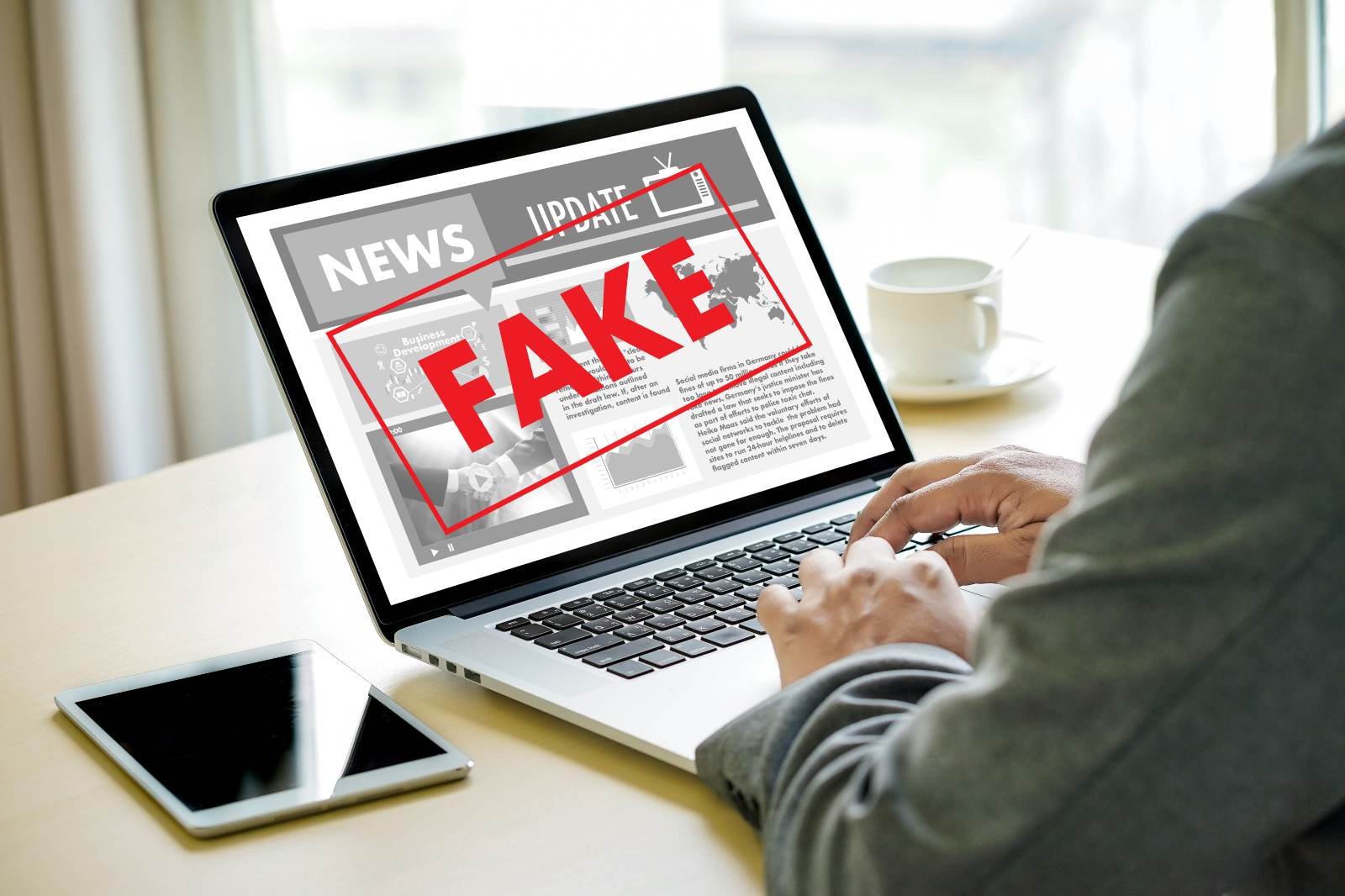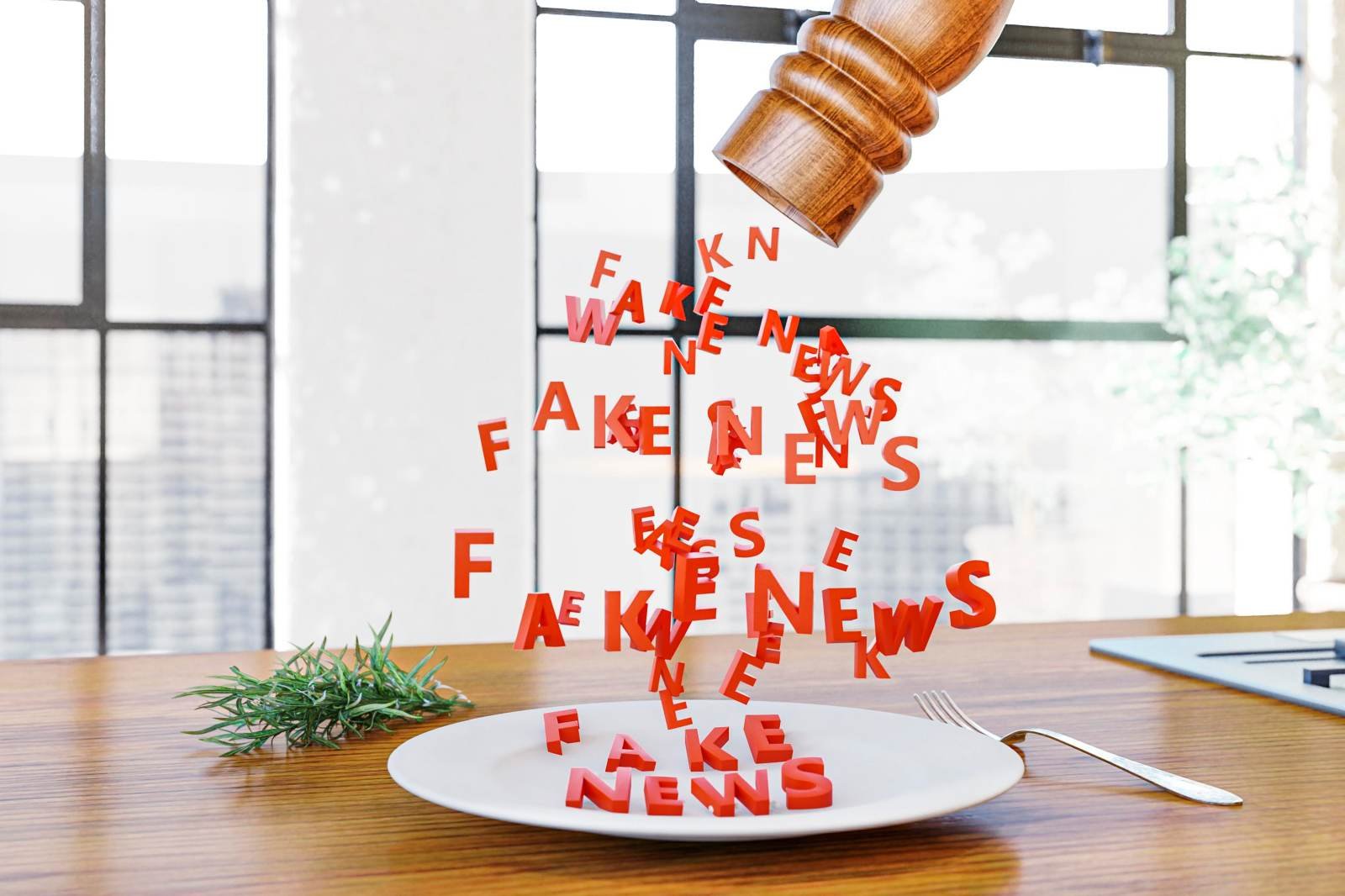
The Protection from Online Falsehoods and Manipulation Act (POFMA) was introduced to regulate the spread of misinformation in Singapore. Enacted in 2019, the law provides the government with tools to address the dissemination of false statements of fact that can mislead the public, threaten national security, or undermine public confidence in the authorities.
POFMA applies to both individuals and organisations, including social media platforms, news websites, and messaging services.
It is not limited to Singapore-based content creators, meaning foreign entities can also be subject to its provisions if their content reaches a Singaporean audience.
What Is The Purpose Of POFMA?

POFMA was implemented to combat the deliberate spread of false information that could mislead the public, incite unrest, or undermine trust in institutions.
Before its enactment in 2019, several incidents in Singapore highlighted the dangers of misinformation and the lack of a legal framework to address online falsehoods effectively.
One notable case was The Real Singapore (TRS), a digital news platform that frequently published sensational and unverified content. In 2015, TRS falsely claimed that a Filipino family had triggered a dispute during the Thaipusam festival by complaining about the noise from musical instruments. This fabricated story stoked xenophobic sentiments and escalated social tensions. The incident underscored how misinformation could fuel racial and religious divisions, leading to public unrest.
POFMA was introduced to provide a structured legal approach to tackling online falsehoods by allowing authorities to issue correction orders, takedown requests, and penalties to those responsible for spreading harmful misinformation.
What Falls Under POFMA?
POFMA is designed to address false statements of fact that are communicated to the public via online platforms.
It does not regulate opinions, debates, or legitimate discussions, nor does it target content that is clearly satirical, humorous, or subjective. The law specifically applies to misleading or inaccurate claims that could cause harm to society.
While POFMA is primarily associated with public online platforms, it can also apply to private chat groups and social media groups.
This means that false statements circulated in large private groups (such as WhatsApp, Telegram, or Facebook groups) may still be subject to POFMA directives.
For POFMA to apply, a statement must:
Be False (Section 2(2)): The statement must be factually inaccurate, misleading, or deceptive. Subjective views, interpretations, or debates do not fall under this category.
Be Publicly Communicated (Section 3): The falsehood must be shared on an online platform accessible in Singapore, such as social media, websites, blogs, or online articles.
Be Harmful to Public Interest (Section 4): The statement must pose a risk to society, this include:
- Threatening public health, safety, or security
- Undermining public trust in institutions
- Disrupting diplomatic relations
- Misleading voters or interfering with elections
- Inciting hostility or discrimination against racial or religious groups
If a statement meets all three criteria, it may be subject to a POFMA directive, requiring the falsehood to be corrected, taken down, or blocked.
What POFMA Does Not Cover
There are certain types of content that do not fall under POFMA, even if they may be controversial or widely debated:
- Opinions, criticisms, and personal viewpoints
Individuals are allowed to express differing perspectives on government policies, societal issues, or public figures. Disagreeing with official narratives is not, in itself, an offence under POFMA. - Satire, parodies, and jokes
Content that is clearly intended to be humorous or exaggerated is not considered a false statement of fact. This means that memes, comedic sketches, or fictional narratives are generally not subject to POFMA orders. - Speculation, forecasts, and predictions
Future projections or uncertain claims (such as economic forecasts, climate predictions, or assumptions about potential events) are not deemed as falsehoods under POFMA, unless they are presented as absolute facts and mislead the public.
Penalties For Violating POFMA

Under POFMA, individuals and organisations found guilty of spreading false information may face severe penalties. These penalties increase if bots or fake accounts are involved in amplifying falsehoods.
Spreading False Statements of Fact
- Individuals: Up to $50,000 fine or 5 years’ imprisonment, or both.
- Organisations: Up to $ 500,000 fine.
Creating or Modifying Bots for False Information
- Individuals: Up to $100,000 fine or 10 years’ imprisonment, or both.
- Organisations: Up to $1 million fine.
- This applies to those who develop or manipulate automated systems to spread misinformation.
Providing Services to Spread Falsehoods
- Individuals: Up to $30,000 fine or 3 years’ imprisonment, or both.
- Organisations: Up to $500,000 fine.
- This includes offering paid services to publish or amplify false information.
These penalties are designed to deter the deliberate spread of misinformation, particularly when falsehoods are circulated to mislead the public or incite unrest.
Exemptions Under POFMA
According to Section 7(4) of POFMA, the restriction on spreading false statements does not apply when the act is carried out as part of, or in connection with, the provision of the following services:
Internet intermediary services: Platforms that facilitate online interactions, such as social media networks and search engines.
Telecommunication services: Companies that provide communication infrastructure, including mobile and broadband networks.
Public internet access services: Businesses or institutions offering public Wi-Fi or internet access.
Computing resource services: Cloud storage, hosting services, and other IT-related support systems.
These exemptions recognise that such service providers do not create or endorse content but merely facilitate its transmission.
Types Of POFMA Directives

When a false statement of fact is identified, the Minister from the relevant government agency may issue one or more directives under Part 3 and Part 4 of POFMA.
These directives aim to correct, remove, or restrict access to misleading information that may harm public interest.
Part 3 Directives: Actions Against False Statements
Correction Direction
When a Correction Direction is issued, the individual or organisation responsible for sharing the falsehood must publish a notice clarifying that the statement was untrue. This notice must:
- State that the previous statement was false and/or
- Provide the correct information or direct readers to a source with the accurate details.
The correction notice may need to be displayed online or published in print media, such as a local newspaper or other recognised publications.
Even if the false statement has already been removed, the correction notice must still be published to prevent further misinformation.
Stop Communication Direction
Under Section 12(1), a Stop Communication Direction requires the removal of a false statement from the internet so that it is no longer accessible to people in Singapore. The individual or organisation responsible for publishing or sharing the falsehood must take action to prevent further circulation.
This may involve:
- Deleting the false content from websites, social media, or other online platforms.
- Stopping any further sharing or reposting of the falsehood.
- Publishing a correction notice to clarify the misinformation.
Authorities may specify a deadline by which the false content must be taken down. If the publisher fails to comply, they may face fines or imprisonment.
Although Stop Communication Directions are published in the Government Gazette, a directive remains valid even if it is not publicly announced.
Part 4 Directives: Targeting Platforms That Spread Falsehoods
Under Part 4 of POFMA, directives can be issued to internet platforms and media service providers when false information has been shared. These measures aim to reduce public exposure to misinformation and provide accurate information to users who may have encountered the falsehood.
Targeted Correction Direction
A Targeted Correction Direction applies to online platforms such as Facebook, Google, or X where falsehoods have been shared. It requires these platforms to display a correction notice to users who have accessed the false content through their services. This directive does not remove the false statement but ensures that users are presented with accurate information to clarify the situation.
Disabling Direction
A Disabling Direction is issued to internet service providers (ISPs) such as Singtel or StarHub. This directive requires ISPs to block access to the false statement for users in Singapore. While the content remains available outside Singapore, users within the country will not be able to view it.
General Correction Direction
A General Correction Direction is given to mass media services, including news agencies, broadcasters, and telecommunications providers. It requires them to publish a correction notice in newspapers, on television broadcasts, or through other public channels. This ensures that a wider audience receives accurate information, even if they did not come across the original falsehood online.
Actions Against Websites That Repeatedly Spread Falsehoods
Websites that frequently publish misleading or false information may be subjected to stricter measures under POFMA. If a platform continuously distributes misinformation, authorities can take action to limit its influence and restrict its financial support or accessibility.
Declaration Of Online Location (DOL)
A website that regularly spreads falsehoods can be classified as a Declared Online Location (DOL). Once this label is applied, the site:
- Must display a public notice informing users of its history of misinformation
- Is barred from receiving financial support, such as advertising revenue or public donations.
Consequences For Non-Compliance Under Section 32(6)(f)
- Individuals: Can face fines of up to $40,000 and/or a prison sentence of up to 3 years.
- Organisations: Can be fined up to $500,000.
Access Blocking Order
An Access Blocking Order may be issued when a declared online location continues to publish falsehoods, particularly if:
- Paid content on the site is accessible to users in Singapore.
- The site owner or operator fails to display a required notice informing users that the platform has been classified as a Declared Online Location.
- The Minister determines that internet users in Singapore have accessed or are actively using the site after it has been officially declared.
Once an Access Blocking Order is in place, the Infocomm Media Development Authority (IMDA) may instruct internet service providers (ISPs) to restrict access to the website for users in Singapore.
If an internet intermediary (such as a social media platform or search engine) controls access to the site, they may also be required to block Singaporean users from viewing it.
Penalties for Non-Compliance
ISPs or internet intermediaries that fail to comply with the order may be fined $20,000 per day, up to a maximum of $500,000.
Appealing Against A POFMA Order

An individual or company that wishes to appeal against a POFMA Direction or Order must first submit a request to the Minister who issued the directive, asking for it to be cancelled.
If the Minister rejects the request, the next step is to file an appeal with the General Division of the High Court.
This appeal must be submitted within 14 days from the date the Minister refuses the application. The court will then review the case and determine whether the directive should be overturned.
How To Appeal Against A POFMA Order
Step 1: Request For Suspension, Variation, Or Cancellation From The Minister
Before taking legal action, the affected party must first submit an application to the Minister who issued the directive. This application can request:
Suspension: Temporarily pausing the directive.
Variation: Modifying the directive’s terms.
Cancellation: Revoking the directive entirely.
Those eligible to apply include:
- Individuals or organisations directly affected by the directive.
- Owners or operators of a Declared Online Location (DOL).
- Those with editorial control over a declared site.
The application must be submitted in full and emailed to:
- The Ministry that issued the directive (as stated in the notice).
- CC: admin@pofmaoffice.gov.sg with the subject line “Application to Minister”.
Additionally, the application must include:
- A copy of the Direction, Remedial Order, or Declaration (or clearly reference it if a copy is unavailable).
- Any supporting documents required under Regulation 13 of the POFMA Regulations.
What Happens Next?
- The Minister has two working days to issue a decision.
- If no response is provided within this time, the request is considered rejected.
- Until a decision is made, the directive remains in effect and must still be followed.
Step 2: Appeal To The High Court
If the Minister rejects the application, the affected party may file an appeal with the High Court within 14 days. The appeal must include:
- An originating application and supporting affidavit.
- The required forms, which can be obtained from the First Schedule of the Supreme Court of Judicature (POFMA) Rules 2019.
- Submission via LawNet & CrimsonLogic Service Bureaus.
Once filed, the High Court will set a hearing date within six working days.
Step 3: Notify The Attorney-General’s Chambers (AGC)
After filing, the applicant must send copies of the appeal documents to the Attorney-General’s Chambers (AGC) by 12pm the next working day. This can be done via:
- Email: AGC_POFMA@agc.gov.sg
- LawNet & CrimsonLogic Service Bureaus
- Physical submission at the AGC reception counter (labelled “POFMA APPEAL”)
The Minister has three working days to submit a response to the appeal.
Step 4: High Court Review
At the hearing, the High Court will examine the case and decide whether to uphold, modify, or overturn the directive. If any party fails to attend, the hearing may still proceed.
Step 5: Further Appeal To The Court Of Appeal
If the High Court upholds the directive, the affected party can attempt to escalate the appeal to the Court of Appeal. However, this requires permission from either the High Court or the Court of Appeal itself.
Conclusion On Singapore Fake News Laws: Guide To POFMA
POFMA plays a key role in combating misinformation in Singapore, ensuring that false statements do not mislead the public or undermine trust in institutions. While the law provides corrective measures and enforcement actions, it also offers avenues for individuals and organisations to appeal against directives they believe are unfair. However, navigating POFMA regulations, compliance requirements, and legal appeals can be complex.
At Tembusu Law, our experienced legal team is well-versed in handling POFMA-related cases, including appeals, compliance advice, and content regulation matters. If you or your business have been affected by a POFMA directive or need guidance on Singapore’s fake news laws, we are here to offer expert legal support.
Contact us today for a consultation and let us help you navigate Singapore’s legal framework with confidence.
Frequently Asked Questions About Singapore Fake News Laws: Guide To POFMA
Is There A Difference Between A Correction Direction And A General Correction Direction?
Yes. A Correction Direction is issued to the individual or entity that originally shared the false statement, requiring them to display a correction notice. A General Correction Direction, on the other hand, is issued to mass media outlets, internet service providers, or other platforms, instructing them to distribute a correction notice to inform the public. Both directives aim to counteract misinformation but are applied differently depending on who is responsible.
Should An Individual Or Business Be Concerned About POFMA If They Share News From Another Source?
If an individual or business shares or republishes a false statement from another source, they may still be held accountable under POFMA. The law applies to anyone who communicates falsehoods to the public, even if they were not the original creator. It is advisable to verify the accuracy of information before sharing it online.
How Does POFMA Address Fake News From Foreign Entities Or Websites?
POFMA can be enforced against foreign entities if the false statement affects Singapore’s public interest. The government may block access to foreign websites, issue correction notices, or take legal action against parties that spread misinformation targeting Singapore. However, enforcement against individuals located overseas may depend on international cooperation.
When Can A False Statement Be Considered A Criminal Offence Under POFMA?
A false statement becomes a criminal offence under POFMA when it is deliberately spread to harm public interest, such as inciting violence, disrupting public order, or misleading voters during elections. Individuals convicted of knowingly spreading falsehoods may face fines or imprisonment. If bots or fake accounts are used to amplify the falsehood, harsher penalties may apply.
How Does POFMA Affect Companies That Host User-Generated Content?
Companies that provide platforms for user-generated content, such as social media sites or forums, may be subject to Disabling Directions or Targeted Correction Directions if falsehoods are spread through their services. They may be required to block access to certain content or display correction notices. Failure to comply could result in fines or regulatory action.
When Can A Business Or Individual Seek Legal Assistance For POFMA-Related Issues?
Anyone who receives a POFMA directive, intends to appeal a decision, or is concerned about compliance risks should seek legal advice immediately. A lawyer can assess whether a directive is justified, represent clients in appeals, and provide guidance on content policies. Legal support is especially important for businesses and individuals involved in media, digital publishing, or public communications.